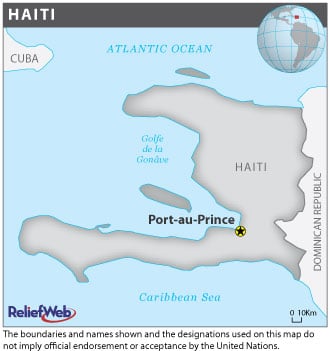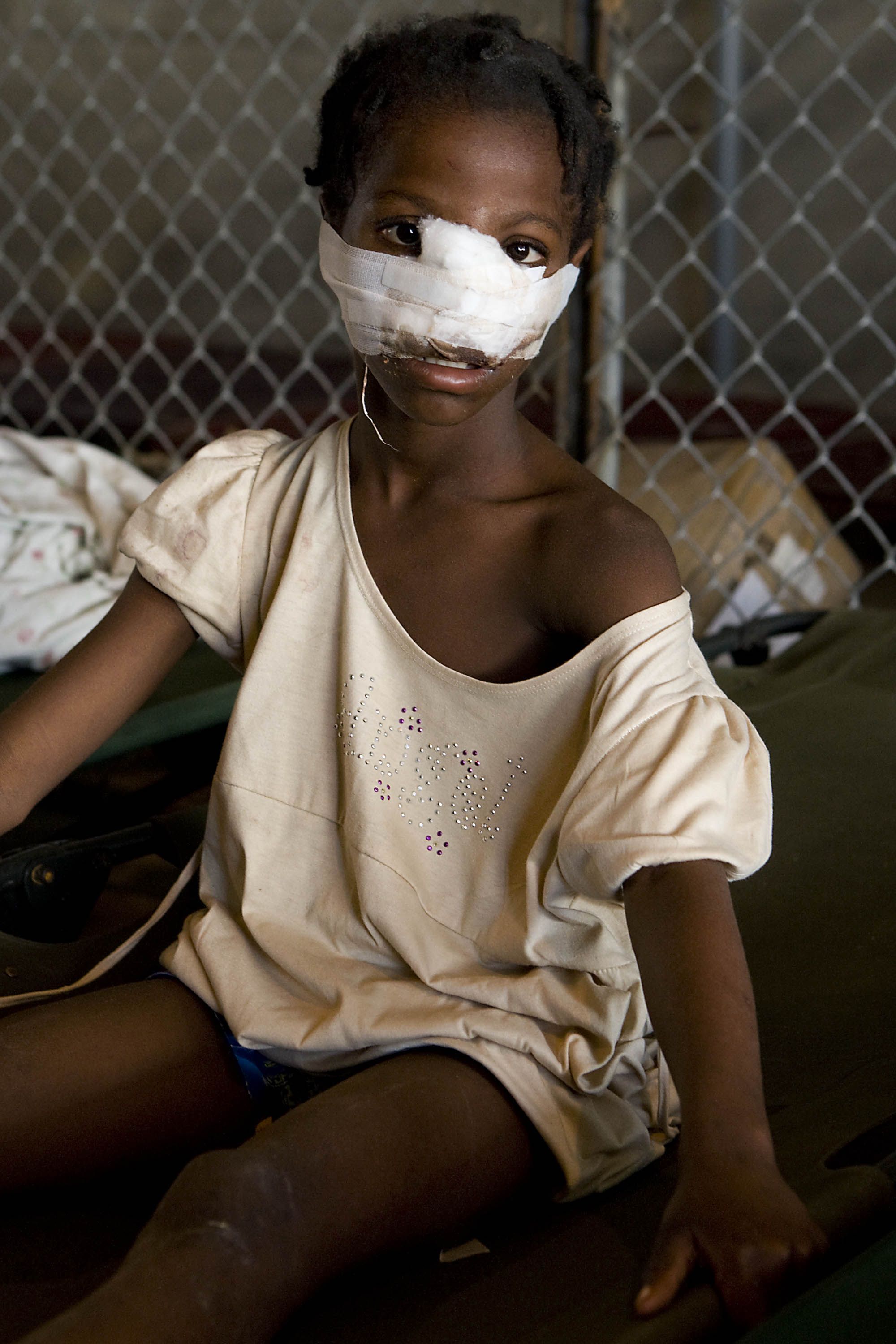Some 2,000 people have registered the names of missing relatives on the International Committee of the Red Cross (ICRC) family links website, set up on 13 January to help families trace loved ones after Haiti's catastrophic earthquake that left tens of thousands dead and many more missing.
People in Haiti and abroad can register on the site the names of relatives they are trying to contact, and responses will be posted as they come in. Local hospitals, schools and other institutions can also post names of people found alive, injured or dead, said ICRC spokesperson, Anna Schaff.
Individuals have also set up websites to trace missing relatives and friends.
Two ICRC tracing specialists were due to arrive in Haiti on 14 January to evaluate the situation and set up tracing systems. “We will go where the people are, be they in camps, nearby fields, schools or other locations,” Schaff told IRIN.
The biggest concern is to identify and register children who have been separated from their families or orphaned, Matt Wingate, emergency coordinator with Save the Children, said.
“Family tracing is the number-one protection priority for now. The clock starts ticking from day one … We don’t yet know the number of lives lost, but many of them will be parents … and many other children will be separated. The vulnerability of children in the immediate aftermath of this crisis is at an unprecedented scale for Haiti.”
The UN Children’s Fund (UNICEF) is setting up its emergency operation, while a Save the Children child protection team is en route to Haiti with family tracing kits, which include cameras, computers, communications equipment, and identification badges and bracelets.

“Thousands [of children] will have lost all contact with their families … and are now struggling to survive in the rubble,” Save the Children said in a 14 January communiqué. “They are sleeping on their own, trying to cope with the trauma ... and will have no idea where to go for help.”
Child protection agencies, including Save the Children and UNICEF, will coordinate with the government, ICRC and other agencies to register children, trace and verify families and find appropriate foster care or alternative solutions where needed, Wingate said.
The death toll from the magnitude 7.0 earthquake that hit the capital, Port-au-Prince, on 12 January has been estimated at between 45,000 and 50,000 by the Haitian Red Cross, news agencies reported.
aj/np/oa
This article was produced by IRIN News while it was part of the United Nations Office for the Coordination of Humanitarian Affairs. Please send queries on copyright or liability to the UN. For more information: https://shop.un.org/rights-permissions





